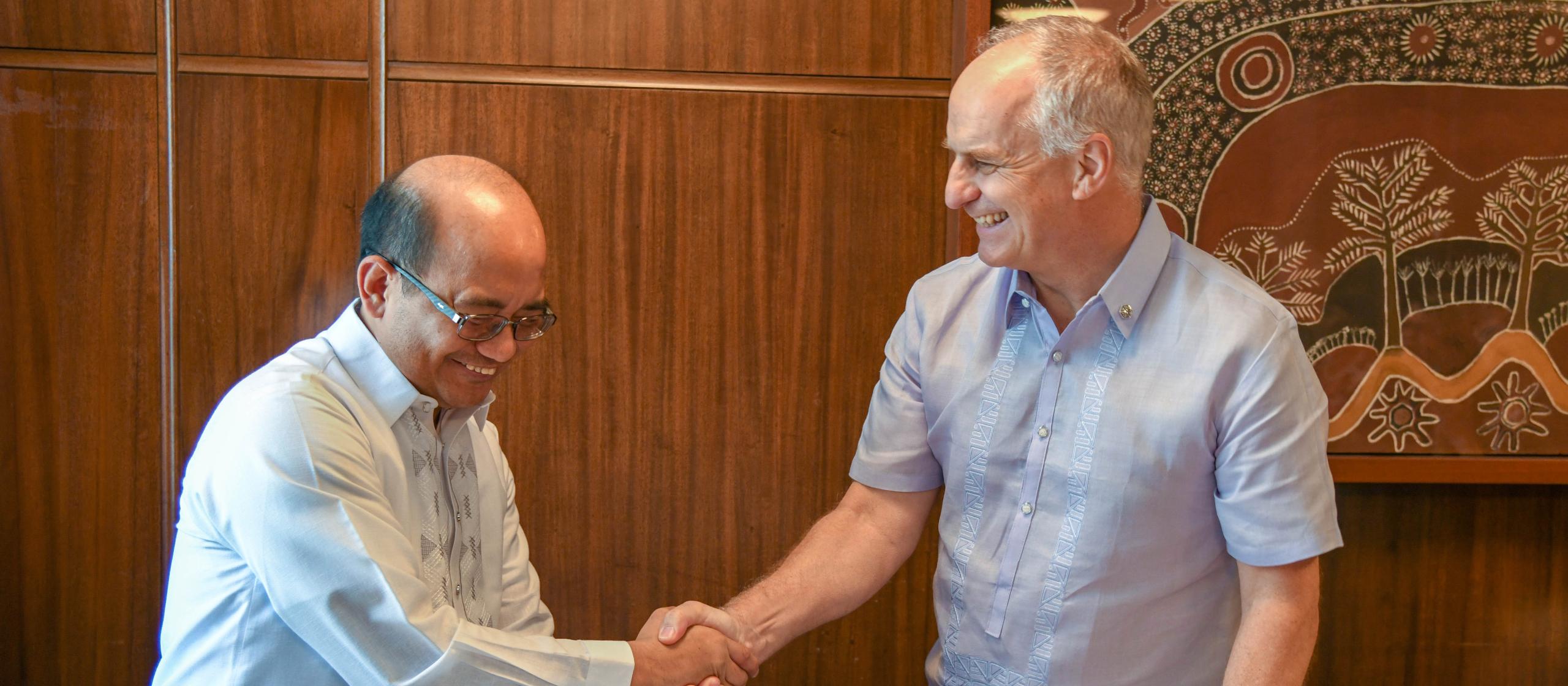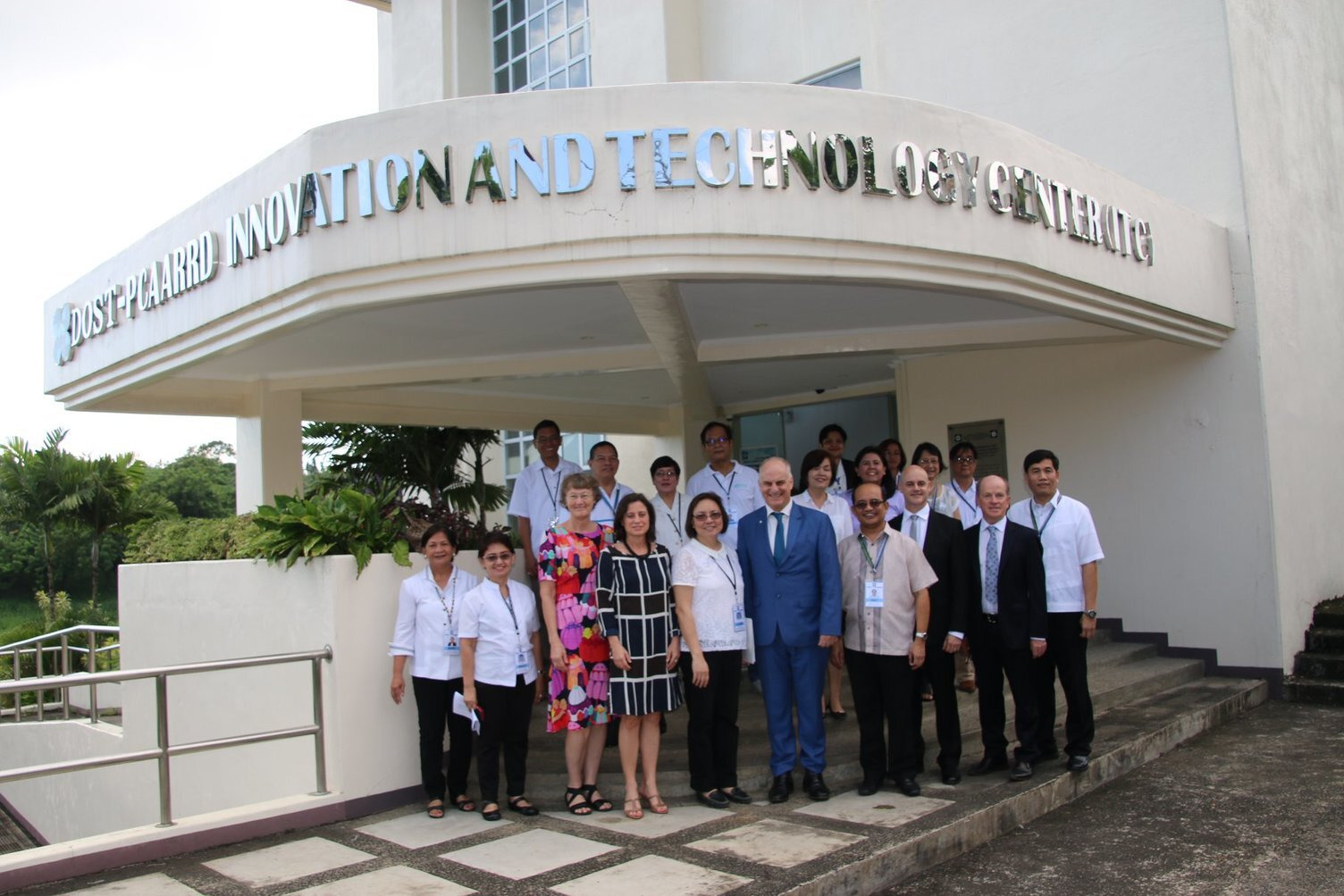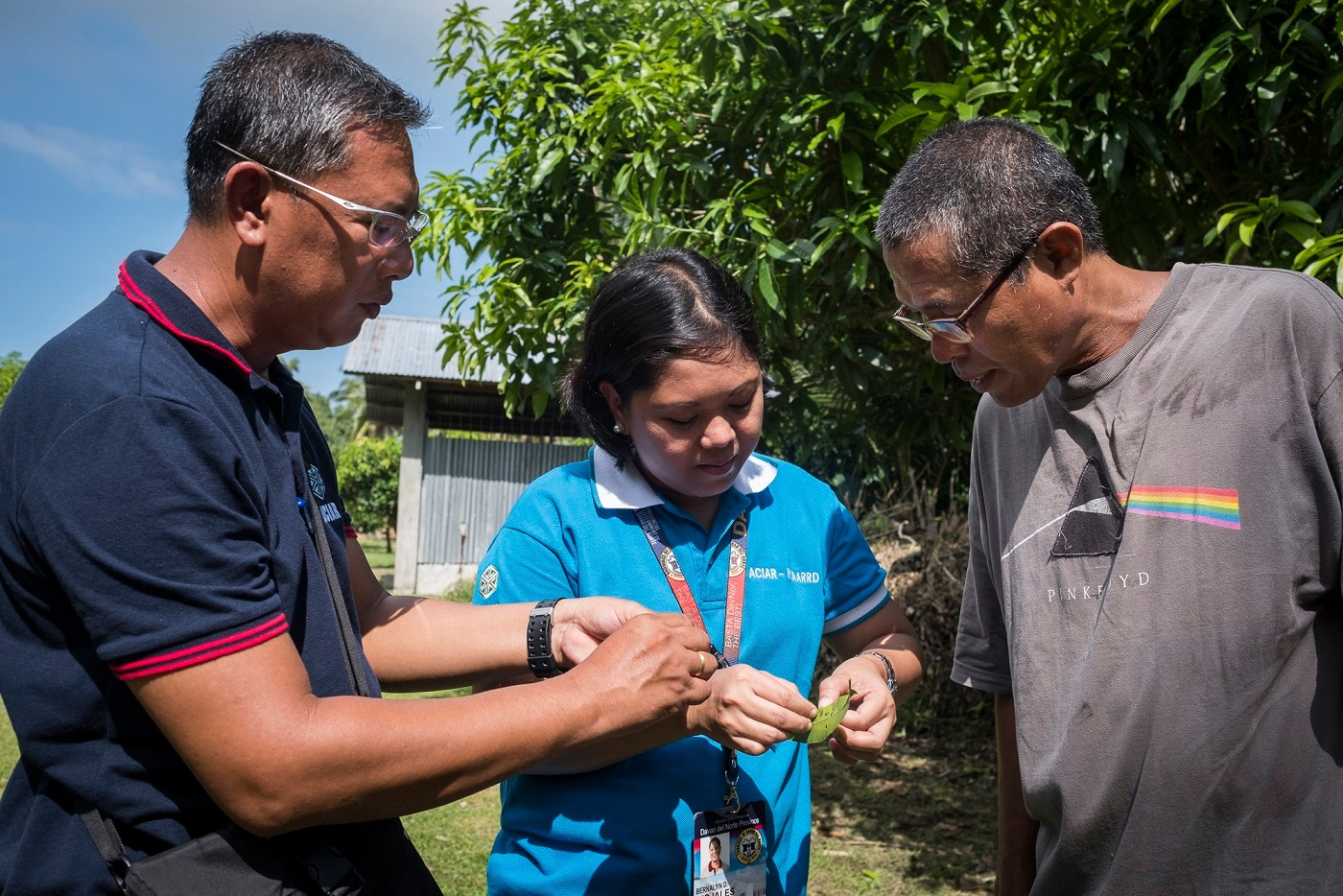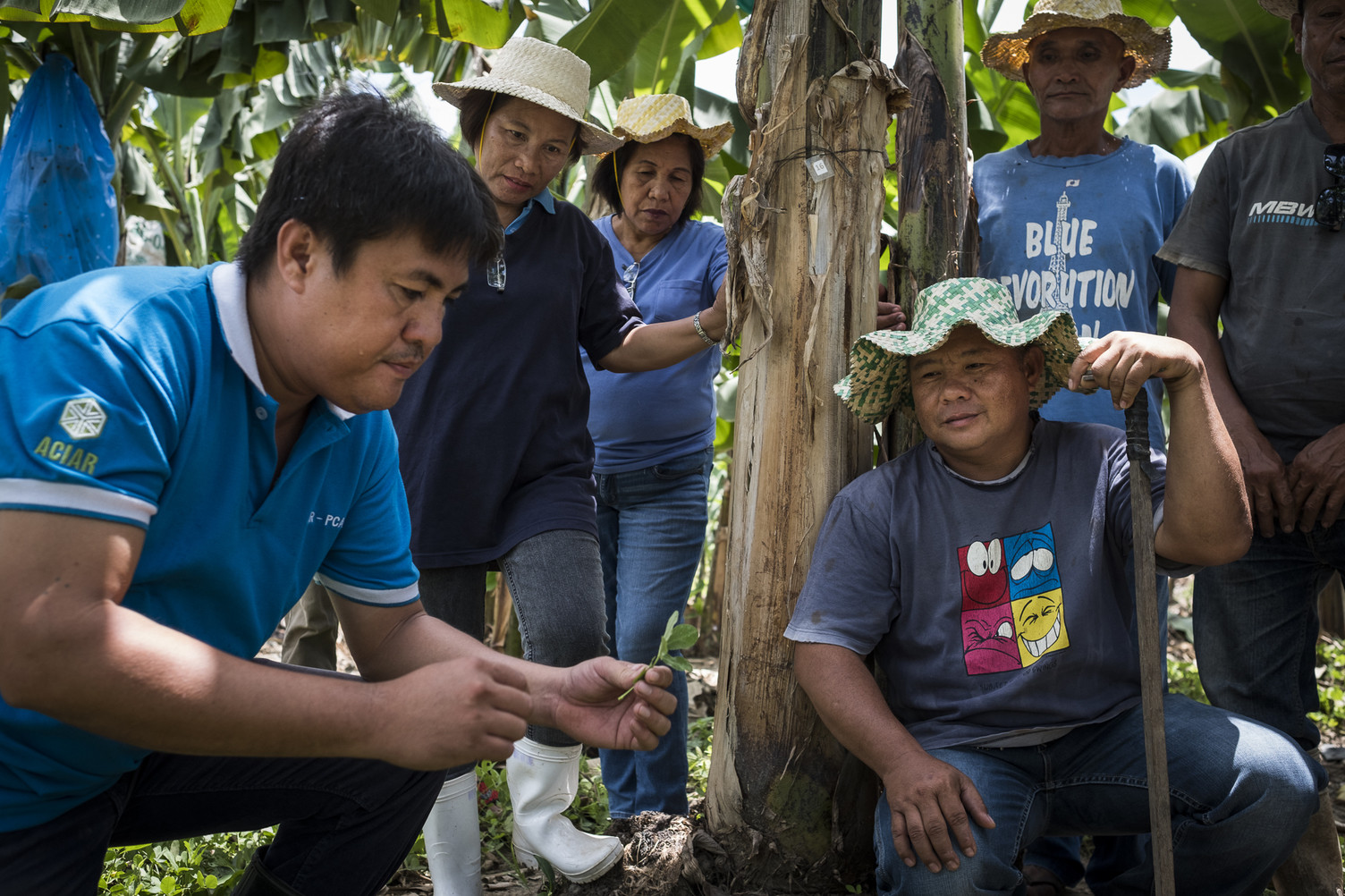- HomeHome
-
About ACIAR
- Our work
- Our people
-
Corporate information
- ACIAR Audit Committee
- Commission for International Agricultural Research
- Policy Advisory Council
- Agency reviews
- Executive remuneration disclosure
- Freedom of information (FOI)
- Gifts and benefits register
- Information publication scheme
- List of new agency files
- Contracts
- Legal services expenditure
- Privacy impact assessment register
- Commonwealth Child Safe Framework
- Benefits to Australia
- Careers
- 40 years of ACIAR
-
What we do
- Programs
- Cross-cutting areas
- Resources
- Where we work
-
Funding
- Research projects
- Fellowships
-
Scholarships
- John Allwright FellowshipScholarships to study in Australia for ACIAR partner country scientists to have Australian postgraduate qualifications
- ACIAR Pacific Agriculture Scholarships and Support and Climate Resilience Program
- Alumni Research Support Facility
- Publications
- News and Outreach
Date released
20 April 2021
In 1984, the Philippines became one of the first partner countries of Australia to host projects supported by the Australian Centre for International Agricultural Research (ACIAR).
Since its inception, ACIAR has been investing and brokering agricultural research partnerships in the Philippines, helping smallholder farmers increase their incomes, improve livelihoods, and enhance access to economic opportunities
Agriculture is a key driver of economic growth in the Philippines, employing more than 11 million people and providing food for 25 million families. It is also a source of raw materials for many thriving industries.
With investment exceeding AU150 million across 220 projects, Australia through ACIAR, has brought together Australian and Filipino scientists and researchers to work on agricultural research programs that have helped improve livelihoods and increase the food security of many Filipino farmers and communities, and have also strengthened research capacity in the Philippines.
People-to-people links
The strong relationship between Australia and the Philippines on agricultural research is best embodied by the partnership between two organisations—ACIAR and the Philippine Council for Agriculture, Aquatic and Natural Resources Research and Development (PCAARRD) of the Department of Science and Technology.
Spanning almost four decades, this partnership is an integral part of the broader Australia-Philippines bilateral relationship, particularly on development cooperation, which marks its 75th anniversary in 2021.
‘Our partnership with ACIAR is one of the most productive partnerships we have,’ says Dr Reynaldo Ebora, PCAARRD Executive Director. ‘We have worked together on projects focusing on crops, horticulture, livestock, fisheries, forestry, agribusiness, social science, soil and water management, and climate change.’
The PCAARRD-ACIAR partnership continues to evolve over the years. Dr Peter Horne, ACIAR General Manager for Country Partnerships, says ‘Within ACIAR, we view our partnership with PCAARRD as an exemplar. ACIAR is very proud of our growing partnership as equal partners and co-investors across research, capacity-building, and impact assessment. Our open and collaborative relationship has allowed us to adapt and develop new projects that respond to the challenges posed by the Covid-19 pandemic on the agricultural sector.’
In 2020, Dr Ebora was appointed to the ACIAR Policy Advisory Council, providing advice to Australia’s Foreign Minister on priority areas and emerging issues in agriculture in the Philippines and more broadly across the Asia-Pacific region. Dr Ebora is the third PCAARRD senior official since 1984 to serve as a member of the Policy Advisory Council.
A key factor to this enduring partnership is the close collaboration of Australian and Filipino scientists and researchers through exchange of information, sharing of expertise and knowledge, and capacity-building.
One of the more recent collaboration of ACIAR and PCAARRD on capacity-building was the Agribusiness Masterclass (AMC) The AMC enhanced the knowledge and capacities of PCAARRD’s Industry Strategic Program managers, its network of researchers and scientists, NGO and private sector representatives, and farmers on agribusiness leadership and collaboration. Participants worked on mini-projects that examined the impacts and challenges of the COVID-19 pandemic on agribusiness value chains.
Dr Ebora said PCAARRD has some limitations in securing researchers to focus on issues critical to agriculture. The Philippines generally does not have a lot of researchers, and even the number of people enrolling in agriculture at universities has also declined. Students are more inclined to take other courses, and those in agriculture are more inclined to take agricultural biotechnology or agricultural entrepreneurship, rather than the traditional agricultural disciplines.
ACIAR and PCAARRD are looking for new partnership models for capacity-building that includes graduate program and short-term trainings. This joint initiative will support the Philippine Government’s broader thrust in enhancing local scientific and technological leadership and expertise in agriculture, biotechnology, environment and natural resources, among others.
Partnership for results
Sharing a commitment to good science is also a key feature of the ACIAR-PCAARRD partnership. To date, this partnership has highlighted how strategic development and implementation of programs to deliver quality outputs, bringing science and technology products and services closer to the market, and closer to Filipino communities.
The collaboration has resulted in many research breakthroughs over the years, including:
- cryo-preservation of seeds of tropical fruit species
- reducing postharvest disease losses in fruits and vegetables
- integrated management of fusarium wilt
- livestock management and biotechnology, including control of respiratory diseases in swine and studies on smallholder livestock producers
- better management practices for natural stands of bamboo
- managing water resources
- production and improving quality, marketing, and market access of fruits and vegetables, and
- helping conflict-vulnerable communities in Mindanao to adopt improved farming methods.
These significant breakthroughs have also led to a joint initiative on improving the way that both institutions assess the impacts of research programs. PCAARRD says it has significantly benefitted from ACIAR support in enhancing the institution’s impact evaluation studies, from an earlier initiative back in 2007.
ACIAR and PCAARRD also recently developed mixed method approaches to impact assessment, essentially broadening the scope of measuring results of research investments beyond the economic benefits and looking at other social and environmental impacts from the perspective of different stakeholders.
The ACIAR-PCAARRD partnership is poised to grow even further, even amidst the COVID-19 pandemic, to pursue new research on inclusive value chains, dairy sector development, marine resource management and soil health. The partnership will continue to explore innovative ways of delivering agricultural research for development in the Philippines and in the region.






